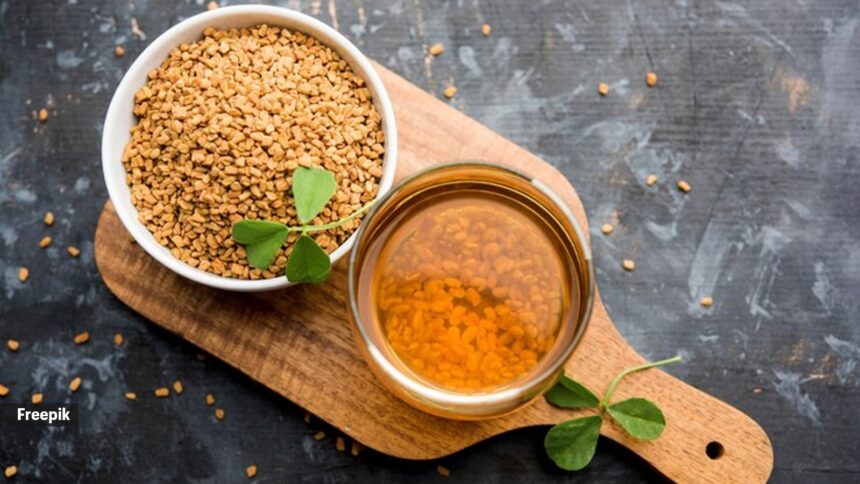Traditional remedies and dietary practices often emphasise the benefits of simple, natural ingredients. One such combination is (methi) seeds with milk, touted for its potential health benefits. This mix is rooted in ancient wisdom, blending the nutrient-rich properties of fenugreek with the nourishing qualities of milk and ghee.
Understanding how these ingredients work together and their potential effects on the body requires deeper exploration. Kanikka Malhotra, consultant dietician and certified diabetes educator, elaborates on the benefits of the consumption of this combination.
Malhotra explains, “Fenugreek seeds, especially when roasted with ghee, offer several nutritional benefits. They are rich in fibre, which aids digestion and helps regulate by slowing sugar absorption in the bloodstream. The roasting process enhances their flavour and makes them easier to digest. Ghee, a source of healthy fats, increases the bioavailability of nutrients, making the fenugreek seeds more effective in promoting satiety and weight management. Additionally, fenugreek contains antioxidants that combat oxidative stress and may lower cholesterol levels, thus supporting heart health. This combination is particularly beneficial for individuals managing diabetes and seeking overall wellness.”
However, it is essential to remember that natural remedies should not replace professional healthcare advice, especially when dealing with serious medical conditions.
Pairing fenugreek seeds with milk enhances digestion and nutrient absorption significantly, notes Malhotra. “Fenugreek seeds are high in soluble fibre, which promotes and aids in regulating blood sugar levels by slowing sugar absorption. When combined with milk, the soothing properties of milk help protect the stomach lining, reducing irritation and bloating.”
The roasting process in ghee further activates digestive enzymes, she adds, facilitating smoother digestion. This combination also increases the bioavailability of nutrients, allowing for better absorption of essential vitamins and minerals, including calcium from milk, which supports bone health and overall metabolic function.
Fenugreek seeds combined with milk may not be suitable for certain health conditions and dietary restrictions. “Individuals with allergies to legumes, such as peanuts or , may experience allergic reactions to fenugreek. Pregnant women should avoid high amounts of fenugreek due to the risk of uterine contractions, which could lead to complications. Additionally, those with diabetes must exercise caution, as fenugreek can lower blood sugar levels, potentially necessitating adjustments in insulin dosage. Lastly, individuals on anticoagulants like warfarin should avoid this combination due to the risk of increased bleeding,” highlights Malhotra.
For optimal benefits, Malhotra recommends consuming 1 to 2 teaspoons (approximately 5 to 10 grams) of ghee-roasted fenugreek seeds daily, paired with 1 cup (about 240 mL) of milk. “This quantity allows for effective nutrient absorption without the risk of , as excessive intake (over 100 grams) can lead to side effects like nausea and intestinal distress. Additionally, this combination supports digestion and enhances the bioavailability of nutrients, making it beneficial for overall health and lactation support,” she concludes.








